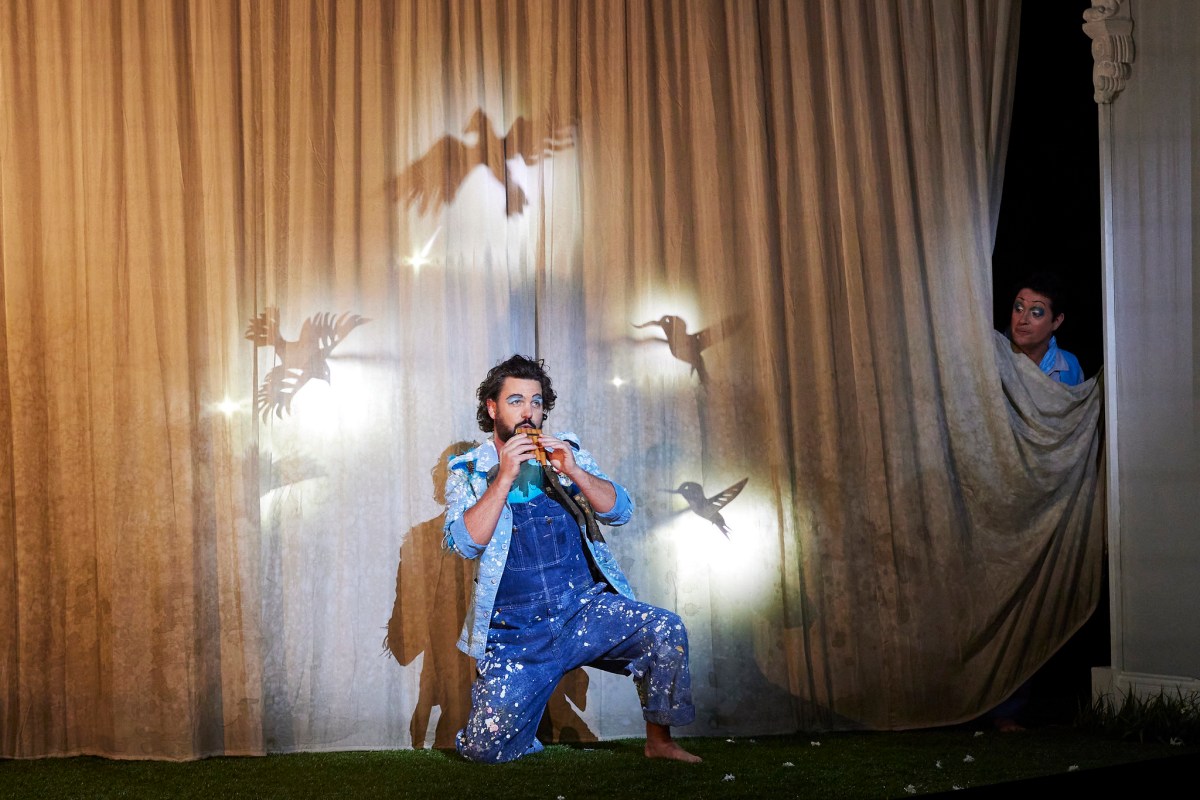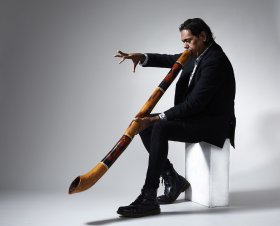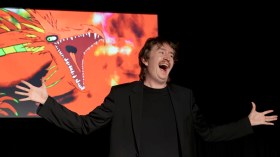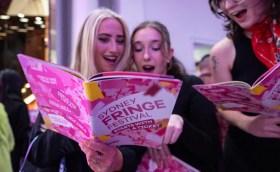Seven years ago, during her last year as artistic director of the Queensland Opera, Lindy Hume told a reporter that she found the gender disparity in the world of opera ‘pathetic’. This year, she has curated Opera Australia’s (OA) summer season as its interim artistic director, after Lyndon Terracini’s early resignation left the company cliff-hanging. That gave the new permanent artistic director, Welsh woman Jo Davies, time to pull together the winter season. The CEO is Fiona Allan. No shortage of women in opera here.
Hume has broken the conservative bonds Terracini wove around OA in the last few years, which were surprising since he was a specialist in contemporary opera in his heyday on the stage. An extraordinary five new productions are dotting the first months of 2024. Four of those five are well-known Enlightenment-era operas, but it’s the way they’re handled that makes the season fresh.
Picking up Yaron Lifschitz’s brilliant circus-driven take on Gluck’s Orpheus and Eurydice as the season’s opener was a masterstroke. It was a rare evening when the Sydney audience left the auditorium arguing about the production instead of asking where the car was parked or whether they should get a drink.
Hume, a director for the times, is a feminist. ‘Sure, she’s an attractive woman,’ she told me before her hugely popular Carmen way back in 1995, ‘but I’ve absolutely banned rubbing up against the scenery, and hands on hips, and tits thrust out. I don’t know anyone who behaves like that.’
She commissioned the inventive director Kate Gaul to take on The Magic Flute, which opened in Sydney last week.
Gaul hasn’t engaged in out-there gender politics in this production and even its class politics – Mozart’s Magic Flute was essentially about freemasonry – have been toned down. Class distinctions are there – Papageno’s Strine accent is certainly louder than Prince Tamino’s more refined speech – but Gaul describes the men in her program notes as ‘comrades’. Her Flute ‘extols the virtues of the Enlightenment centred on the value of human happiness, the pursuit of knowledge obtained by means of reason, of the senses and shared endeavour, and ideals such as liberty, tolerance, freedom of expression and our relationship to nature’. A rather updated description.
The happy ending in her version consists of a back-to-nature pastel-toned picnic in the healthy outdoors, with Sarastro, in a softly coloured robe instead of the gold regalia he’d worn beforehand, reconciled with the evil Queen of the Night. That’s right. Gaul has made the warring Sarastro (a force for good) and the Queen of the Night (a force of darkness) Pamina’s parents.
David Parkin as Sarastro is one of the stars of the evening. His resonant bass and towering height make him an appropriately commanding presence on the stage. Ben Mingay is a professional actor, as well as a powerful bass-baritone and it shows. His Papageno’s broad Aussie accent makes the most of the updated libretto, translated from German into Australian English, and he continually raises laughs from the audience. Soprano Stacey Alleaume’s Pamina is delightful, lyrical without being cloying, and her body language certainly lacks patriarchal deference to the Prince.
This Tamino is far from imperious. Michael Smallwood’s prince is understated, his tenor voice fading amid his full-voiced colleagues.
In fact, Pamina’s finest duet on the night this reviewer attended was the one with Papageno on the value of marital love: her desire for fulfilment with Tamino and his reiteration of constant moaning about the lack of it.
Giuseppina Grech’s Queen of the Night is disappointing, though not because of her talents: her raunchy outfits overpower her singing, as the raunchy behaviour of her three attendants overpowers theirs.
Read: Exhibition review: Yhonnie Scarce: The Light of Day, Art Gallery of WA
The sets too are disappointing and suggest that Gaul is operating on a tight budget. Indeed, they have been repurposed from the OA’s 1989 production of Werther, the original design and the rejuvenation both by Michael Yeargan. Unlike the allure of the original, however, with its gauzy hints behind the scenes, the same elaborate pale green architraves that adorned the three significant doors of this opera tower over the same grass-green floor, which is heaped in the rear corners, and the white flowers that adorn it rather look more like accumulated trash thrown from passing car windows.
The Magic Flute
Conductor: Teresa Riveiro Böhm (1-23 February), Tahu Matheson (29-16 March)
Director: Kate Gaul
Set Designer: Michael Yeargan
Costume Designer: Anna Cordingley
Lighting Designer: Verity Hampson
Movement Director: Andy Dexterity
English Translation: Kate Gaul, Michael Gow
Set Design Consultant: Richard Roberts
Cast: Stacey Alleaume, Michael Smallwood, Ben Mingay, Giuseppina Grech, David Parkin, Jane Ede, Indyana Schneider, Ruth Strutt, Jennifer Black, Kanen Breen, Dean Bassett, Gregory Brown, Nathan Lay, Elijah Alkhair, Estell Gilmovich, Abbey Hammond, Zev Mann, Thomas Prowse, James Valanidas
Opera Australia Chorus
Opera Australia Orchestra
Tickets: from $79
The Magic Flute will be performed until 16 March 2024






